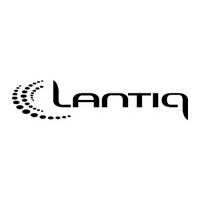PSB2115HV1.2 Lantiq, PSB2115HV1.2 Datasheet - Page 51

PSB2115HV1.2
Manufacturer Part Number
PSB2115HV1.2
Description
Manufacturer
Lantiq
Datasheet
1.PSB2115HV1.2.pdf
(317 pages)
Specifications of PSB2115HV1.2
Lead Free Status / Rohs Status
Supplier Unconfirmed
Available stocks
Company
Part Number
Manufacturer
Quantity
Price
Part Number:
PSB2115HV1.2
Manufacturer:
INFINEON/英飞凌
Quantity:
20 000
- Current page: 51 of 317
- Download datasheet (4Mb)
If no acknowledgment is received within a certain time (programmable), the IPAC
requests an acknowledgment by sending an S frame with the poll bit set (P = 1) (RR or
RNR). If no response is received again, this process is repeated in total CNT times (retry
count, programmable via TIMR1 register).
The termination of the transmission operation may be indicated either with:
– XPR interrupt, if a positive acknowledgment has been received,
– XMR interrupt, if a negative acknowledgment has been received, i.e. the transmitted
– TIN interrupt, if no acknowledgment has been received at all after CNT times the
If the IPAC is operating in the auto mode, the window size (= number of outstanding
unacknowledged frames) is limited to 1; therefore an acknowledgment is expected for
every I frame sent with an XIF command. The acknowledgment may be provided either
by a received S or I frame with corresponding receive sequence number (see figure 14).
Note: Prerequisite for sending I frames in the auto mode (XIF) is that the internal
The transparent transmission of frames (XTF command) is possible in all message
transfer modes. The successful termination of a transparent transmission is indicated by
the XPR interrupt.
A transmission may be aborted from the outside (E
stop/go bit is set to 1, provided DIM1-0 (MODED register) are programmed
appropriately. An example of this is the occurrence of an S bus D-channel collision. If
this happens before the first FIFO pool has been completely transmitted and released,
the IPAC will retransmit the frame automatically as soon as transmission is enabled
again. Thus no P interaction is required.
On the other hand, if a transmission is inhibited by the Stop/Go bit after the first pool has
already been released (and XPR generated), the IPAC aborts the frame and requests
the processor to repeat the frame with an XMR interrupt.
In LT-T mode the Stop/Go bit can be output on pin AUX7 which may be used for test
purposes.
Semiconductor Group
message must be repeated (XMR = Transmit Message Repeat),
expiration of the time period
additionally).
operational mode of the timer has been selected in the MODED register
(TMD bit = 1).
t
1
(TIN = Timer INterrupt, XPR interrupt is issued
51
D) which has the effect that the
Functional Description
PSB 2115
PSF 2115
11.97
Related parts for PSB2115HV1.2
Image
Part Number
Description
Manufacturer
Datasheet
Request
R

Part Number:
Description:
Single Phase Rectifier Bridge
Manufacturer:
POWERSEM [Powersem GmbH]
Datasheet:

Part Number:
Description:
Manufacturer:
Lantiq
Datasheet:

Part Number:
Description:
Manufacturer:
Lantiq
Datasheet:











